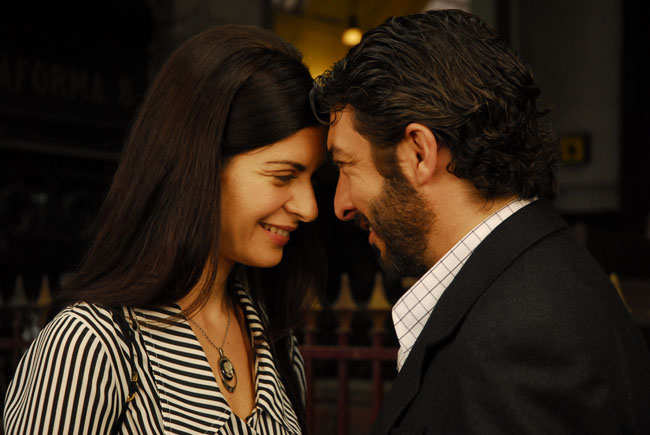 Rating: 4.0/5.0 |
CHICAGO– The 2009 Best Foreign Language Film, the compelling “The Secret in Their Eyes” from Argentina, explores a corrupt past with a longing and regret, through characters who seek to rectify their bygone days.
Benjamin (Ricardo Darín) is a retiring public attorney who cannot shake a particular case he worked on in the 1970s. With the excuse to write a novel about the events, he visits his old office and colleague Irene (Soledad Villamil), who is now a powerful judge in Argentina. The memories they conjure morphs into a flashback to the case, where the events play out once again.
In the 1970s, during a political transition in Argentina’s history, a young newlywed bride has been murdered, and Benjamin has been called to the scene. There is something about the brutality of the atmosphere that effects him greatly. When a colleague in his office has called in the usual suspects, Benjamin reacts angrily, knowing that the real murderer is still at large and the railroading is part of political convenience.
Taking on the investigation on his own, with his associate Sandoval (Guillermo Francella) and the newest lawyer in the office, Irene, Benjamin goes straight to the victim’s widower (Pablo Rago) and uncovers some clues in old photographs. This path to the real killer is fraught with government interference, insider politics and threats to all in Benjamin’s office, including his feelings toward Irene.
 Photo Credit: María Antolini for Sony Picture Classics |
Back in the present, Benjamin finds that the process of memory has opened old wounds, and the blood that flows from them might not give him the closure and peace that he desires.
This is Argentina’s most popular film in 35 years, based on a popular novel and touching the heart of the country in its mystery and memories. Director Juan José Campenella makes the murder case almost secondary to the characters, and in that way the characters begin to represent the evolution of Argentina from a militaristic territory in the 1970s to the current circumstance, complete with a woman as president.
Ricardo Darín, the glue of the film as Benjamin, creates a deep emotional impression as he takes the weight of the case in the flashbacks, and is burdened with it still in the present. It becomes incumbent on him to personally find the endgame to the thirty year old crime, if only to lighten the heaviness that seems wedded to him in his every movement and interpersonal action.
Supporting him in both the present and the past is Soledad Villamil, a striking actor whose piercing eyes best represent the title and acts as a the bridge between the eras. Her character is fearless, even in the face of a killer’s direct confrontation. In a background way, by being herself in the midst of the brutal investigation in the 1970s, it made sense that she’d have a judgeship position of earned power in the present. And even in the sense of connection with Benjamin, her character never gives anything away, preferring to make their professional relationship the driving force between them.
One of the unexpected wrenches in Benjamin’s noble quest is his Pancho Sanza in the film, Guillermo Francella as Sandoval. Francella is one of Argentina’s most popular comedians, and his bittersweet clerk role has a sorrowful tinge that is heartbreaking. His loyalty to Benjamin is combined with a destructive alcoholism, making even his most heroic scenes unstable. His performance is of a man slowly committing suicide, with a perverse gratitude that the dark hole is enveloping him.
 Photo Credit: María Antolini for Sony Picture Classics |
This film is less about a murder case and more about the human beings left in its wake. The narrative actually stalls a bit when presented with “just the facts,” and reinvigorates when exploring the effect it has on Benjamin, Irene and the other persons of interest associated with those facts.
“In my film, the past is the present and the present represents the future,” the director Juan José Campenella remarked in a HollywoodChicago.com interview. The unburdening of those former sins – both of character and country – allow the eyes to look forward, and finally dissipating a past that kept pulling them back.
 | By PATRICK McDONALD |